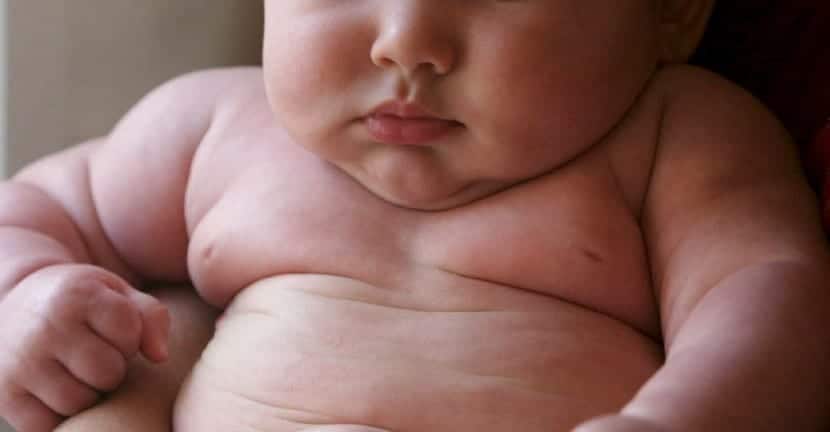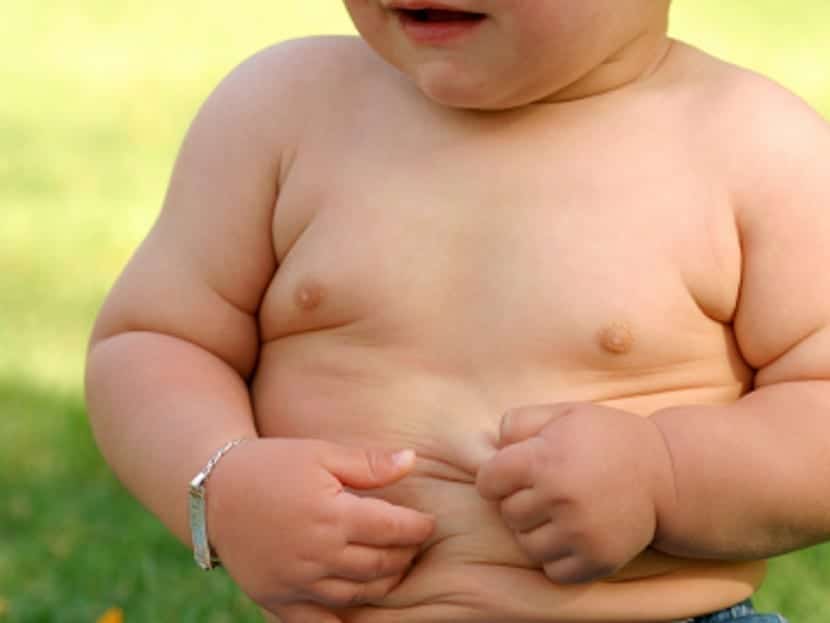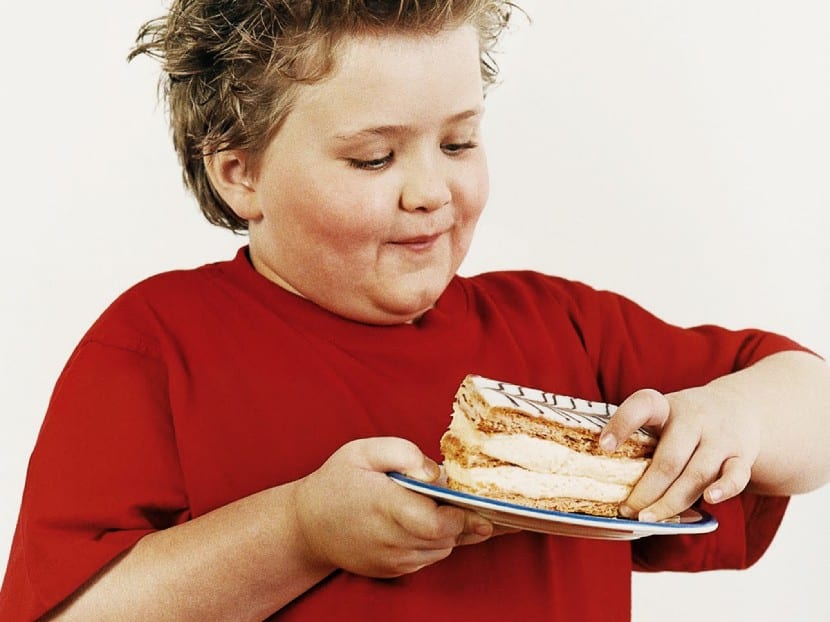
Most mothers and relatives of a baby think that if they see it chubby and chubby is reason he's healthy because it eats well. In addition, they comment on phrases such as "he will lose weight when he grows up" or "let him eat what he wants and how much he wants, which is very small.
However, if situations that can lead to childhood obesity are not remedied, they can occur health problems in your future. If the baby exceeds up to 20% his weight percentile in relation to his age, he will be considered an obese baby, with its corresponding consequences.
One of them is the difficulty of movement, that we will be able to perceive when the baby tires more than normal when running, and also when sitting down, if he does not control his stability. In addition, when walking it is seen how his body wobbles to the sides.
La WHO (World Health Organization) states that childhood obesity is a serious global problem of this XNUMXst century and that it is progressively affecting many countries. For this reason, it proclaims that this disease must be a priority and prevented as soon as possible.
Causes of childhood obesity
Obese children tend to follow being so in adulthood and, consequently, to contract much earlier diseases, such as diabetes and cardiovascular diseases.
This overweight at such an early age is given by bad eating habits by the parents. At pregnancy A healthy diet, rich in fruits and vegetables, must be followed, accompanied by daily physical exercise, not only to help the mother at the time of delivery, but also to avoid feeding the infant with unhealthy foods.
In addition, when the baby is born, it is common for parents and grandparents to indulge the little ones with large amounts of food and, when they are older, other unhealthy delicacies, such as a large sandwich loaded with high-calorie foods or, singular whims, such as industrial pastries, fast food or sweets.
On the other hand, there are 3 factors in which this global problem is related. These factors are:
- Genetic - If the parents are obese, the baby is much more likely to be born with this health problem. Also because of the lifestyle that the family leads, that is, the foods they consume (hypercaloric), the way they cook them and the little energy expenditure of them.
- Environmental - A hypercaloric diet brings with it an increase in body fat, but a sedentary lifestyle is a big problem in today's children. Both the television, the computer and the consoles are elements that attract your leisure or free time, thus avoiding physical exercise, causing this inactivity.
- Psychological - Sometimes, there are children who eat foods of little nutritional value for certain reasons, among which is stress, insecurity, boredom or to mitigate their frustrations.
How to detect obesity in children?
The person who will detect obesity in a baby is the pediatrician. In the follow-up of the infant, the doctor will take the measurements of the percentiles in relation to the weight, avoiding any anomaly. However, when a higher percentage is already established in these percentiles, the doctor will do a thorough physical exam where he will ask the parents about the child's eating habits and exercise routines.
If the habits are healthy, a blood test can be done, in order to rule out problems of thyroid or endocrine that lead the baby to this weight gain. However, diagnosing obesity in children is different from adult parameters.
Prevention against childhood obesity
The best weapons to combat being overweight at an early age is to start with correct eating habits from a young age, in addition to having a active lifestyle, full of activities in which children exercise, burn the calories ingested and be more agile.
In this way, in their youth and adulthood they are more likely to follow these healthy habits so their health will be rewarded and they are not as likely to establish risk of disease related to their weight. Therefore, both the family like the school should encourage children to eat healthy foods, rich in vitamins, minerals and carbohydrates recommended for a balanced and correct diet. As well as establishing an active rhythm of daily physical exercise, such as cycling, taking routes or climbing, etc.
On the other hand, a early detection and the establishment of dietary measures will correct this overweight so that it does not progress further. The important thing is to establish a diet focused on reducing children's weight, without interfering with their growth and development.


